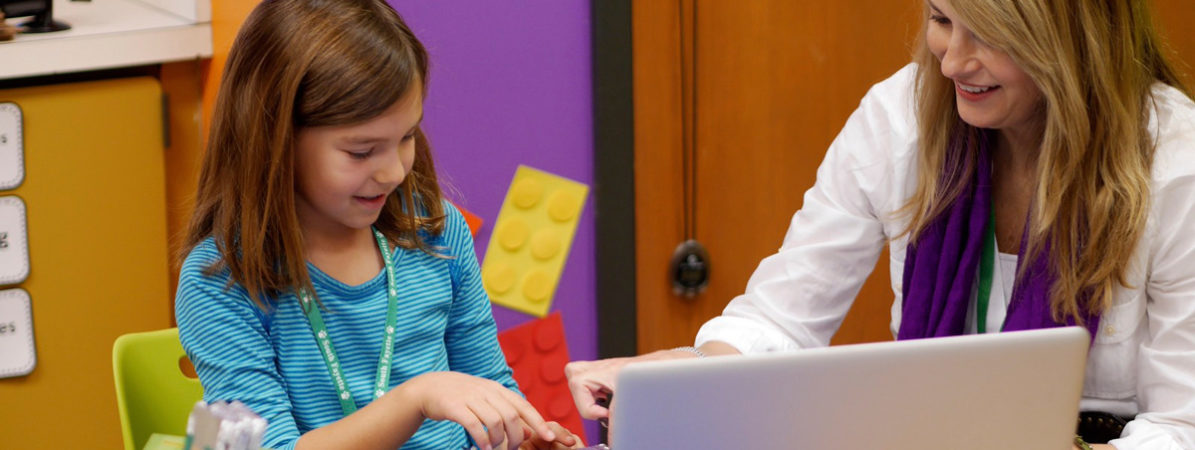
Read a full recap of our fall 2015 League of Innovative Schools meeting.
In every community, there are people who aim to help children succeed. It is important to remember that these individuals don’t work exclusively in schools. As educators work tirelessly to prepare tomorrow’s problem solvers, they often benefit from the work of those around them. Mr. Rogers might have had it right all along; every day is a good day to call upon a neighbor.
Avonworth School District, Elizabeth Forward School District, and South Fayette Township School District, the three Pittsburgh-area host districts of the fall 2015 League of Innovative Schools meeting, reminded participants that schools do not exist in silos, nor should they operate in them. These districts have forged partnerships with museums, workforce development agencies, philanthropic organizations, higher-ed institutions, after-school programs, and local businesses to provide students with more opportunities to pursue their passions, and develop their skillsets. The mutual benefit is clear; engaging students is the key to growing and maintaining the vibrant, healthy, and forward-thinking community Pittsburgh has become.
“We live in a world in which we need to share responsibility. It’s easy to say, ‘It’s not my child, not my community, not my world, not my problem.’ Then there are those who see the need and respond. I consider those people my heroes.”Fred Rogers
Leaders from the League, a coalition of 73 forward-thinking school districts representing 33 states (including the 22 new district members of the League), came to Pennsylvania to see the partnerships that Avonworth, Elizabeth Forward, and South Fayette sustain. Pittsburgh native Fred Rogers once said, “We live in a world in which we need to share responsibility. It’s easy to say, ‘It’s not my child, not my community, not my world, not my problem.’ Then there are those who see the need and respond. I consider those people my heroes.” In the Pittsburgh region, there is no shortage of heroes in the neighborhood.
Over 250 organizations and 3,000 people comprise Pittsburgh’s Remake Learning Network, which brings together teachers, students, and parents, in addition to universities, museums, libraries, after-school programs, education technology startups, funders, and nonprofits to shape the future of teaching and learning. Meeting participants saw the products of Remake Learning’s work first-hand at the Children’s Museum of Pittsburgh, where partnerships with Carnegie Mellon University (CMU), the University of Pittsburgh, and others helped create MAKESHOP, one of the nation’s leading makerspaces. Visitors also stopped by CMU’s Entertainment Technology Center, where graduate students work with schools to develop educational games that complement real-world learning environments. These projects help create a culture of collaboration that produces real, tangible results for students.
At Avonworth, high school students organize and curate contemporary art exhibits within their school under the guidance of art professionals at the Andy Warhol Museum. At South Fayette, students work with Schell Games to develop and test products, and provide feedback on new learning apps and games. At Elizabeth Forward, students study and create games in the Entertainment Technology Academy, a curriculum developed in partnership with the CMU Entertainment Technology Center. Relationships with these world-class organizations provide students exposure to careers and opportunities a traditional classroom experience could not facilitate.
Just as Pittsburgh-area districts benefit from the Remake Learning Network, many League districts forge meaningful partnerships with leaders in their communities. Students in Utica Community Schools have access to apprenticeship and internship opportunities with local automotive and defense companies. Educators in Sitka School District work with local tribe leadership to develop culturally relevant curricular experiences for students. In the Bay Area, San Francisco Unified School District is working with the Mayor’s office and Salesforce to transform middle school STEM education by integrating digital content and devices with Math Common Core State Standards. The list of examples are endless – and so are the possibilities.